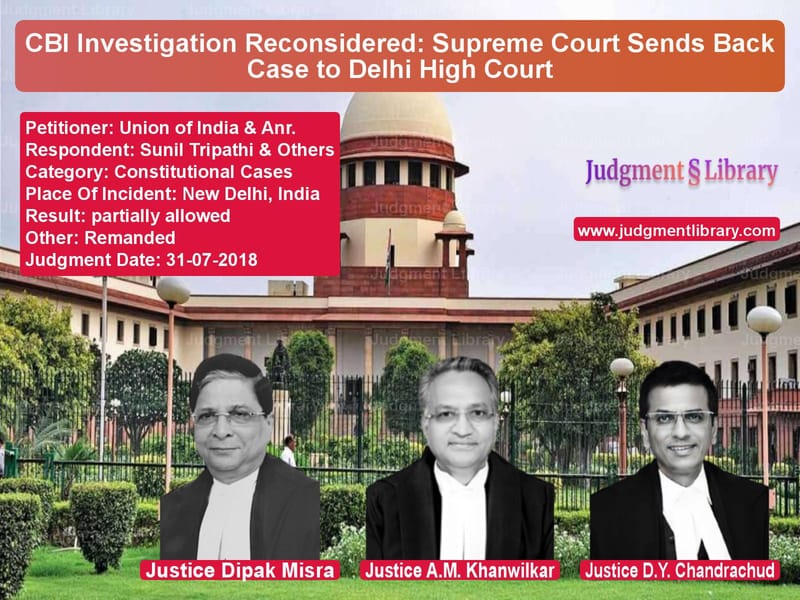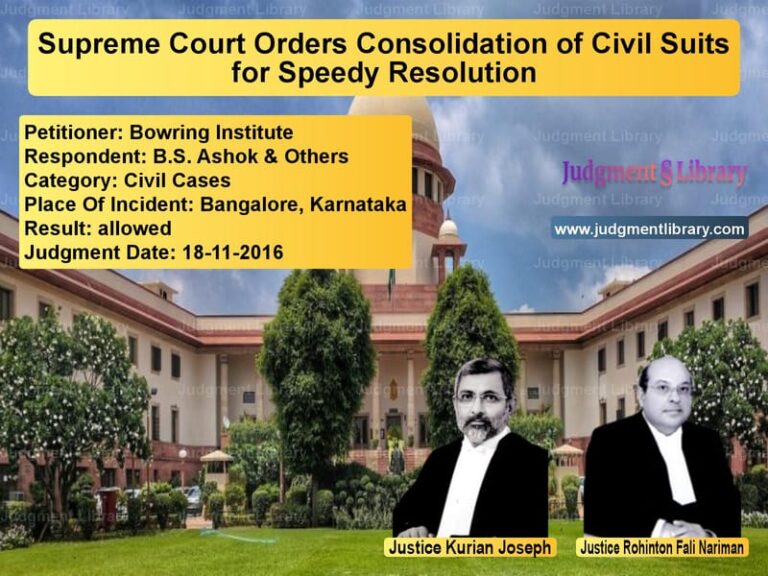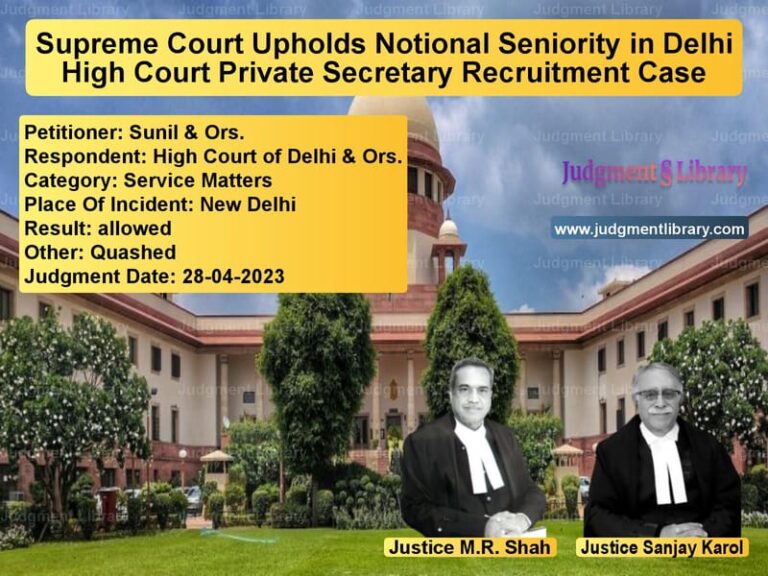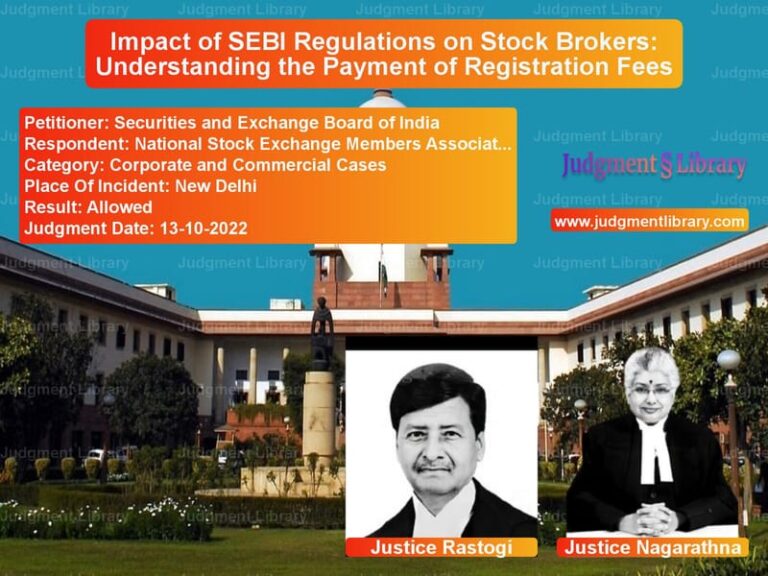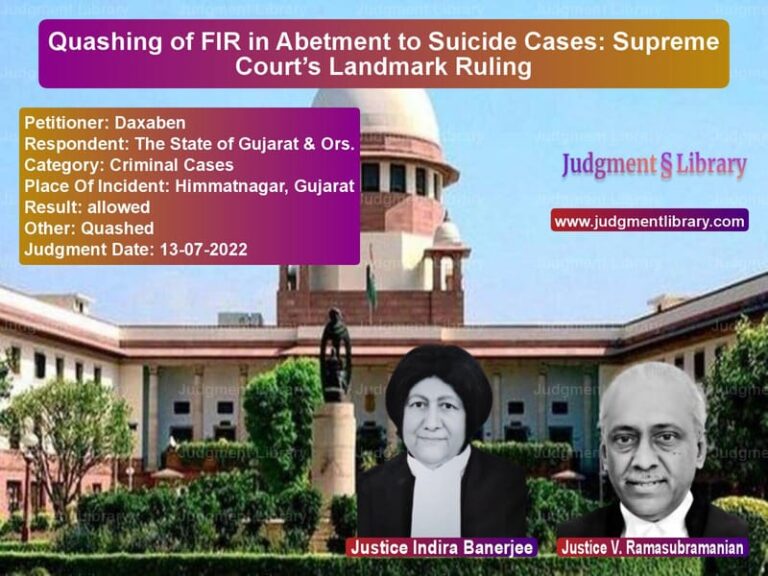CBI Investigation Reconsidered: Supreme Court Sends Back Case to Delhi High Court
The case of Union of India & Anr. v. Sunil Tripathi & Others revolves around the jurisdiction of the Central Bureau of Investigation (CBI) in handling a preliminary enquiry into allegations of corruption and misuse of public office in the Directorate General of Resettlement (DGR). The Supreme Court was called to decide whether the Delhi High Court was correct in directing the CBI to register an FIR and proceed with the investigation.
Background of the Case
The dispute originated when allegations were made regarding irregularities in the operation of schemes under the DGR, which were intended to provide second career opportunities for ex-servicemen. The petitioners alleged that certain private firms, in connivance with unknown government officials, had gained undue benefits, leading to financial losses to the public exchequer.
The Delhi High Court, in its order dated July 20, 2017, directed the CBI to register FIRs for three separate preliminary enquiries and conduct an investigation into the alleged irregularities.
Arguments by the Parties
Union of India & CBI (Appellants) Arguments
- The CBI, after conducting its preliminary enquiry, found no prima facie involvement of public servants or loss to public funds.
- The preliminary enquiry reports recommended that investigations should be conducted by state police instead of the CBI.
- The High Court had misdirected itself by relying on allegations rather than findings of the CBI’s preliminary enquiry.
- There was no national or international security implication requiring a CBI investigation.
- The High Court’s directive exceeded legal limits by forcing the CBI to take over an investigation even when there was no evidence justifying such a move.
Respondents’ (Sunil Tripathi & Others) Arguments
- The CBI had earlier indicated to the High Court that it was already conducting an investigation into the matter.
- The preliminary enquiry reports identified several irregularities, showing that crimes had been committed.
- There was sufficient evidence pointing towards financial irregularities that needed to be investigated.
- The High Court had correctly ordered a CBI probe since the allegations involved private firms colluding with government officials.
Supreme Court’s Observations
The Supreme Court analyzed the findings of the preliminary enquiries and the reasoning given by the High Court in ordering a CBI probe. The Court observed:
- The High Court’s decision to direct the registration of FIRs was primarily based on allegations rather than an independent analysis of the CBI’s preliminary reports.
- The preliminary enquiry reports had concluded that there was no clear involvement of public servants, which is a key criterion for the CBI to take over an investigation.
- The High Court should have analyzed the CBI’s report before mandating an investigation.
- The legal principle that CBI should not be forced to investigate a case where no prima facie case of corruption or public fund misappropriation exists was not considered by the High Court.
Final Judgment
The Supreme Court set aside the Delhi High Court’s order directing the CBI to register FIRs. However, instead of ruling outright on whether the CBI should investigate the matter, the Supreme Court remanded the case back to the Delhi High Court for reconsideration. The Court instructed:
- The High Court must independently analyze the preliminary enquiry reports submitted by the CBI.
- The High Court should determine if there is a prima facie case for a CBI investigation rather than relying on allegations alone.
- Until a fresh decision is made by the High Court, no FIRs should be registered.
- The matter must be handled in accordance with the provisions of the Delhi Special Police Establishment Act, 1946.
The Supreme Court clarified that it was not expressing any final opinion on the merits of the case but only ensuring that the High Court follows proper legal procedures before directing a CBI investigation.
This ruling reaffirms the principle that courts must carefully examine preliminary enquiries before mandating a CBI investigation, ensuring that investigative agencies are not forced into cases without sufficient legal justification.
Petitioner Name: Union of India & Anr..Respondent Name: Sunil Tripathi & Others.Judgment By: Justice Dipak Misra, Justice A.M. Khanwilkar, Justice D.Y. Chandrachud.Place Of Incident: New Delhi, India.Judgment Date: 31-07-2018.
Don’t miss out on the full details! Download the complete judgment in PDF format below and gain valuable insights instantly!
Download Judgment: Union of India & Anr vs Sunil Tripathi & Oth Supreme Court of India Judgment Dated 31-07-2018.pdf
Direct Downlaod Judgment: Direct downlaod this Judgment
See all petitions in Fundamental Rights
See all petitions in Public Interest Litigation
See all petitions in Separation of Powers
See all petitions in Judgment by Dipak Misra
See all petitions in Judgment by A M Khanwilkar
See all petitions in Judgment by Dhananjaya Y Chandrachud
See all petitions in partially allowed
See all petitions in Remanded
See all petitions in supreme court of India judgments July 2018
See all petitions in 2018 judgments
See all posts in Constitutional Cases Category
See all allowed petitions in Constitutional Cases Category
See all Dismissed petitions in Constitutional Cases Category
See all partially allowed petitions in Constitutional Cases Category

